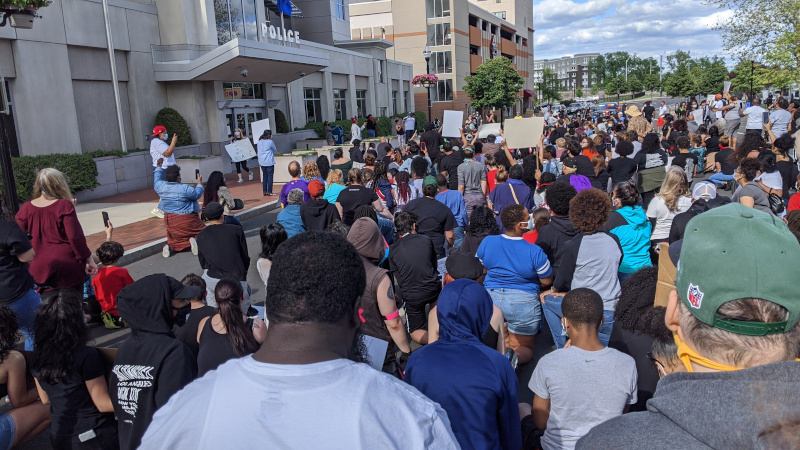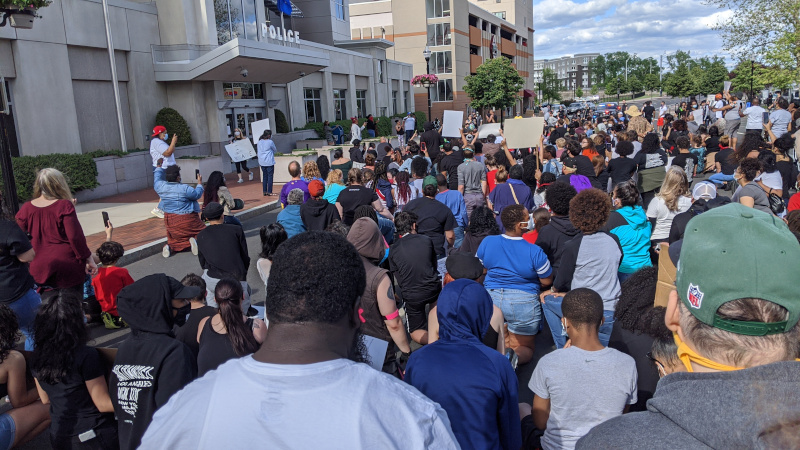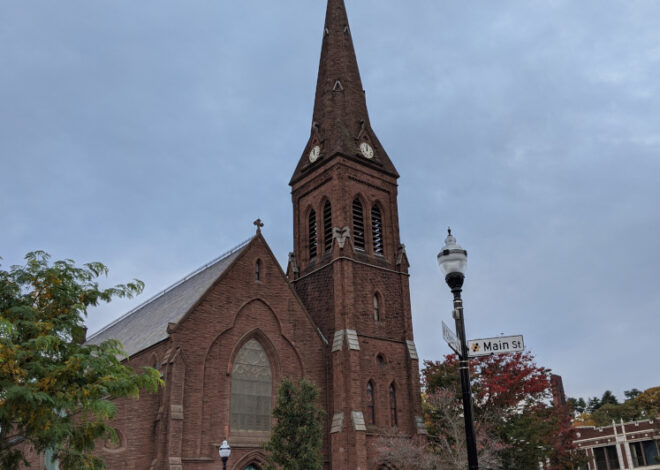The public hearing on the proposal to create an advisory-only “independent” “Police Civilian Review Board” appointed entirely by the mayor is to be September 10th.

The new public hearing date on the proposal is Thursday, September 10, 2020. This is a change from the original planned date on September 3, 2020.
The hearing, with a committee meeting to follow in the City Council’s Consolidated Committee, is planned for 7:00pm.
The Council notice says that, “Due to current public health concerns, this meeting will not be open to the public. Members of the public may view a live broadcast of the meeting online via the livestream link: http://www.newbritainct.gov/meetings,” adding that,
Individuals seeking public hearing participation may join the queue beginning at 6:50 pm by calling 1 (415) 655-0001 and entering Meeting ID 126 896 4040. Callers are asked to wait with their phones on mute until they are recognized.
The way that the Police Civilian Review Board was been proposed in the City Council has come under criticism from community advocates, who want a new community police review board chosen by the community and given subpoena investigatory powers in the city ordinances. The current proposal, submitted during the August 12, 2020 City Council meeting, does neither.
Calls for the community review board for the city’s Police were made as massive protests occurred nationwide, including in New Britain, in the wake of the killing of George Floyd by police in Minneapolis. The killing of Floyd, Ahmaud Arbery, Rayshard Brooks and other African Americans have sparked vigorous protests against ongoing racism in the nation.
In July, the New Britain Racial Justice Coalition and the Black Ministerial Alliance of New Britain, with the support of the NAACP New Britain Branch, the People’s Coalition of Central Connecticut and others called for a “People’s Agenda” in New Britain. One of the key items the People’s Agenda was a call for,
The creation of a Civilian Review Board with subpoena powers whose membership is selected by the community.
The call for the police review board to be appointed by the community appears reinforced the new state police accountability law, which says that allow local legislative bodies, which the City Council is in New Britain, are empowered by the state law to choose how civilian police review boards are appointed. The state law provides that the review board can be, “elected or appointed,” as the City Council chooses, saying that,
The legislative body of a town may, by ordinance, establish a civilian police review board. The ordinance shall, at a minimum, prescribe: (1) The scope of authority of the civilian police review board; (2) the number of members of the civilian police review board; (3) the process for the selection of board members, whether elected or appointed; (4) the term of office for board members; and (5) the procedure for filling any vacancy in the membership of the civilian police review board.
The state law appears to override New Britain’s City Charter, which says that all commission appointments are made by the mayor.
But, in the proposal being made in the City Council, all five voting members of the police civilian review board (PCRB), plus two alternates would be appointed by the mayor. The Police Chief would also appoint one non-voting member.
The proposal says that the appointments would be made, “by the Mayor in accordance with Sections 5-2(e) and 7-1(b) of the City Charter.” However, the charter explicitly says that an exception to the mayor making all appointments is when, “otherwise designated by the General Statutes,” which the new state police accountability law is.
The proposed ordinance also appears to allow the Police Department to screen who may be on the civilian review board, saying that all members of the board, “must pass a police background check.”
The police civilian review board, in the proposal, would be advisory-only. The proposal also appears to be structured such that the board would not be starting investigations on its own.
The police civilian review board would have the power to investigate, “complaints against members of the New Britain Police Department alleging excessive use of force which have initially been filed with the Chief of Police.” But, as provided in the proposed ordinance, the board would appear to be expected to wait in starting its own review until, “After completion of the investigation by the Internal Affairs Division,” of the New Britain Police Department.
The proposal provides that the police civilian review board,
shall review the conclusions of any internal affairs investigation of a complaint prior to any disciplinary action being taken and recommend further investigation to the Chief of Police if appropriate. After receiving all necessary information required to fully review the complaint, the PCRB shall make a written report of its review and recommendation as to discipline to be taken if any. However, the PCRB shall not have authority to impose discipline. The Chief of Police shall make the decision regarding discipline.
The proposal says that, “The Police Chief shall seriously consider the recommendations of the PCRB,” saying the Chief that must respond to their recommendations in writing.
The proposed ordinance would allow the police review board to have access to, “all police documents, reports, electronic transmission, videotape and any other transcriptions related to said civilian complaint,” but would allow the Police Chief to redact information as, “required by law.”
However, the state law says that,
Any civilian police review board established pursuant to subsection (a) of this section may be vested with the authority to: (1) Issue subpoenas to compel the attendance of witnesses before such board; and (2) require the production for examination of any books and papers that such board deems relevant to any matter under investigation or in question.
After the public hearing on the proposal on September 10th Council’s Consolidated Committee has the option to make changes to it and may, if it chooses, refer it back to the full Council for final approval. The committee may do that on September 10th or at a later meeting.




